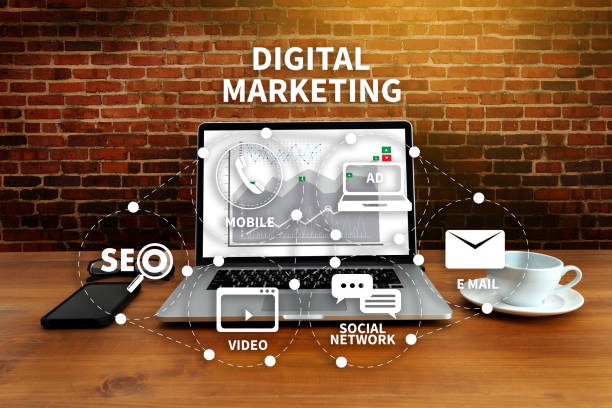In today’s fast-paced digital world, businesses must establish a strong online presence to thrive. One of the most critical components of a successful digital marketing strategy is search engine optimization (SEO). But why is SEO important in digital marketing? Simply put, it helps businesses increase visibility, drive organic traffic, and build credibility in an increasingly competitive landscape. This article will dive deep into the role and significance of SEO, offering insights into how you can leverage it for your business success.
What is SEO and Its Role in Digital Marketing?
SEO, or search engine optimization, is the process of optimizing a website to improve its visibility on search engine result pages (SERPs). It involves strategic practices aimed at making your website more attractive to search engines like Google, Bing, and Yahoo.
SEO is not just about attracting more visitors; it’s about bringing the right audience to your site. For instance, if you run an e-commerce store, SEO ensures that potential buyers searching for products you offer find your website. In digital marketing, SEO serves as the foundation of your online presence. A well-optimized website ensures that your content reaches the right audience, generates high-quality leads, and ultimately boosts conversions. SEO works hand-in-hand with other digital marketing components such as content marketing, social media, and paid advertising, creating a holistic approach to achieving business goals.

Why is SEO Essential for Online Success?
SEO is not just a buzzword; it is a necessity for businesses aiming to grow in the digital age. Here’s why:
- Increased Visibility: Ranking higher on SERPs ensures that your target audience can easily find your business. When users search for keywords related to your industry, appearing on the first page significantly increases the likelihood of clicks and engagement.
- Cost-Effective Strategy: Unlike paid advertising, SEO focuses on earning organic traffic, which can deliver long-term results with minimal ongoing costs. It is an investment that continues to pay off, especially when compared to short-term ad campaigns.
- Credibility and Trust: Websites that rank high are often perceived as more trustworthy and authoritative by users. SEO helps establish your brand as an industry leader by consistently delivering quality content and adhering to best practices.
- Enhanced User Experience: SEO practices like improving page speed, mobile-friendliness, and navigation create a better experience for visitors, keeping them engaged and reducing bounce rates. A user-friendly website also encourages repeat visits, fostering customer loyalty.
Key SEO Factors That Impact Search Rankings
To achieve success with SEO, it’s crucial to understand the key factors that influence search engine rankings. These include:
1. On-Page SEO:
- Keyword optimization: Strategically placing keywords within your content, headers, and meta descriptions to align with search intent.
- High-quality, relevant content: Providing value to your audience by answering their questions and solving their problems.
- Proper use of meta tags and headings: Enhancing readability and signaling the structure of your content to search engines.
2. Off-Page SEO:
- Backlinks from reputable sites: Building relationships with authoritative websites to gain links that improve your domain authority.
- Social media signals: Sharing your content on social platforms to increase visibility and engagement.
- Brand mentions: Gaining recognition from other websites or platforms that reference your business without necessarily linking.

3. Technical SEO:
- Website speed and performance: Ensuring fast load times to enhance user satisfaction and reduce bounce rates.
- Mobile responsiveness: Optimizing your site for mobile devices to cater to the growing number of mobile users.
- Secure (HTTPS) site structure: Protecting user data and building trust with visitors and search engines.
4. User Engagement Metrics:
- Bounce rate: Reducing the percentage of users who leave after viewing only one page.
- Time spent on page: Encouraging users to stay longer by offering valuable and engaging content.
- Click-through rates: Improving the number of users clicking on your site from SERPs by crafting compelling titles and meta descriptions.
By addressing these factors, businesses can significantly improve their rankings and online visibility.
Top Benefits of SEO for Your Digital Marketing Strategy
Investing in SEO offers numerous advantages, including:
- Higher Organic Traffic: Quality SEO drives more visitors to your site without relying on paid ads. Organic traffic often consists of highly engaged users who are actively searching for your products or services.
- Better ROI: Compared to traditional marketing, SEO delivers a higher return on investment by targeting users who are already interested in what you offer.
- Local Reach: Optimizing for local SEO ensures that businesses can attract customers within their geographical area. For small and medium-sized businesses, this is a game-changer in driving foot traffic and local engagement.
- Sustainable Results: Unlike paid campaigns that end when the budget runs out, SEO continues to yield results over time. A well-maintained SEO strategy can keep your business visible and competitive for years.
- Improved Brand Awareness: Consistently ranking high for relevant keywords increases your brand’s visibility and recognition. This positions your business as an industry authority and fosters trust among your audience.

How to Get Started with an Effective SEO Plan
Creating an effective SEO strategy doesn’t have to be overwhelming. Here are some steps to get started:
- Conduct Keyword Research: Identify the keywords your target audience uses to find products or services like yours. Tools like Google Keyword Planner or SEMrush can help you uncover valuable search terms.
- Optimize Your Website: Ensure your site is fast, mobile-friendly, and easy to navigate. Streamline the user journey by minimizing unnecessary clicks and improving overall functionality.
- Create High-Quality Content: Publish content that answers users’ questions, solves their problems, and provides value. Use various formats like blogs, videos, and infographics to engage different types of users.
- Build Backlinks: Partner with reputable sites to improve your domain authority. Guest blogging, partnerships, and creating shareable content are excellent ways to earn quality links.
- Monitor and Adjust: Use tools like Google Analytics and Search Console to track your performance and refine your strategy. Regularly analyze metrics such as traffic, conversions, and bounce rates to identify areas for improvement.
Conclusion
In conclusion, SEO is an indispensable part of digital marketing, providing businesses with the tools they need to succeed online. By focusing on the right strategies and consistently optimizing your website, you can attract more organic traffic, build credibility, and achieve sustainable growth. SEO is not a one-time effort; it requires ongoing commitment and adaptation to changing trends and algorithms.
If you’re looking for expert help, Marketing Technology offers comprehensive SEO services and content marketing solutions to help your business thrive in the digital landscape. Contact us now!

Frequently Asked Questions:
1. What are the key benefits of SEO in digital marketing?
SEO enhances online visibility, drives organic traffic, and builds credibility for businesses.
2. How can I start optimizing my website for SEO?
Begin by conducting keyword research, improving website performance, and creating valuable content.
3. Why is SEO important in digital marketing compared to paid advertising?
While paid ads provide immediate results, SEO delivers long-term benefits and a better ROI.






Trackbacks/Pingbacks